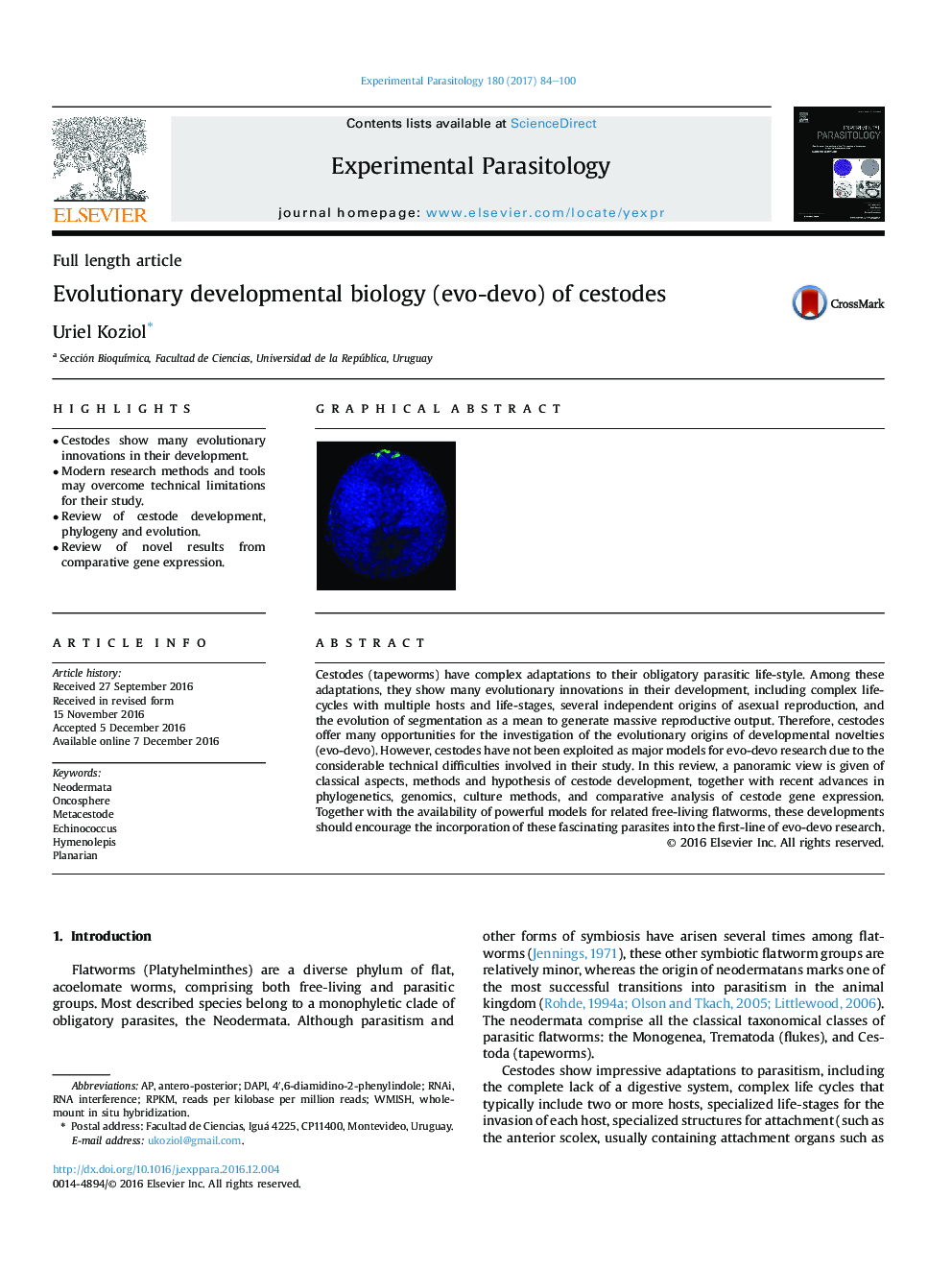| Article ID | Journal | Published Year | Pages | File Type |
|---|---|---|---|---|
| 5741052 | Experimental Parasitology | 2017 | 17 Pages |
â¢Cestodes show many evolutionary innovations in their development.â¢Modern research methods and tools may overcome technical limitations for their study.â¢Review of cestode development, phylogeny and evolution.â¢Review of novel results from comparative gene expression.
Cestodes (tapeworms) have complex adaptations to their obligatory parasitic life-style. Among these adaptations, they show many evolutionary innovations in their development, including complex life-cycles with multiple hosts and life-stages, several independent origins of asexual reproduction, and the evolution of segmentation as a mean to generate massive reproductive output. Therefore, cestodes offer many opportunities for the investigation of the evolutionary origins of developmental novelties (evo-devo). However, cestodes have not been exploited as major models for evo-devo research due to the considerable technical difficulties involved in their study. In this review, a panoramic view is given of classical aspects, methods and hypothesis of cestode development, together with recent advances in phylogenetics, genomics, culture methods, and comparative analysis of cestode gene expression. Together with the availability of powerful models for related free-living flatworms, these developments should encourage the incorporation of these fascinating parasites into the first-line of evo-devo research.
Graphical abstractDownload high-res image (219KB)Download full-size image
